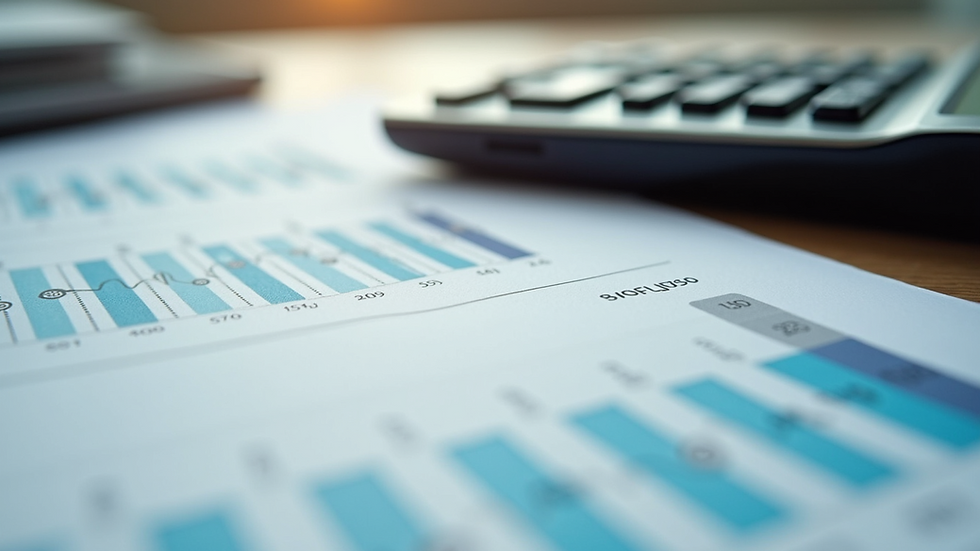Everything You Need to Know About Corporate Fixed Deposits
- bijalkapadia
- Jul 29, 2025
- 4 min read
Investing in a corporate fixed deposit can be an attractive option for both individuals and businesses seeking stability and higher returns. Unlike traditional savings accounts, corporate fixed deposits offer better interest rates and an opportunity for long-term financial growth. In this article, we will delve into the nuances of corporate fixed deposits, their features, benefits, and considerations to keep in mind.
Corporate Fixed Deposits
Corporate fixed deposits are investment instruments that companies offer to their investors. These deposits allow investors to deposit a sum of money for a predetermined period, offering higher returns compared to savings accounts or bank fixed deposits. The interest rates are generally higher due to the associated risks; companies use these funds for various business operations.

What is a corporate fixed deposit?
A corporate fixed deposit is a financial tool provided by companies to encourage individuals to invest their funds for a fixed tenure. Investors deposit a certain amount with the company and, in return, earn interest over the chosen period. The interest is typically paid out either quarterly or at maturity, offering a steady income stream for investors.
Key Features of Corporate Fixed Deposits
Higher Interest Rates: One of the most significant advantages of corporate fixed deposits is the higher interest rates they offer. Companies may provide rates ranging from 6% to 10%, depending on their financial stability and the market conditions.
Flexible Tenure: Corporate fixed deposits come with flexible tenure options, ranging from a few months to several years. Investors can choose a duration that aligns with their financial goals.
Risk Factors: Unlike bank fixed deposits, corporate fixed deposits carry a higher risk. Investors should evaluate the issuing company's credit rating and financial health before committing their funds.
Premature Withdrawal: While most corporate fixed deposits allow for premature withdrawals, it often comes with penalties. It's essential to read the terms and conditions carefully to avoid unexpected deductions.
Advantages of Corporate Fixed Deposits
Higher Returns
Compared to regular savings accounts and government fixed deposits, corporate fixed deposits yield significantly higher returns. For instance, if a traditional bank offers a 5% return, a well-rated corporate fixed deposit can offer up to 9% or 10%. This invites investors looking to maximize their returns with relatively low risks.
Tax Benefits
Investors can enjoy tax benefits under the Income Tax Act in specific scenarios. For example, if the amount is invested in a fixed deposit scheme for a minimum period, you might be eligible for tax exemptions. Always consult with a tax advisor for personalized guidance on tax implications.

Compound Interest
Most corporate fixed deposits accrue interest on a compound basis, meaning that not only does the initial investment earn interest, but the accrued interest also earns additional interest over time. This can significantly increase the overall returns on your investment by the maturity date.
Diversification
Investing in corporate fixed deposits can be a great way to diversify your investment portfolio. By spreading your investments across various asset classes like stocks, lending, and corporate bonds, you can mitigate risks while taking advantage of potential higher returns.
Risks Associated with Corporate Fixed Deposits
Credit Risk
The primary risk associated with corporate fixed deposits is credit risk. This refers to the possibility that the issuing company may go bankrupt or face financial difficulties, leading to a loss of your invested amount. It's crucial to conduct due diligence and look at the company’s credit rating before investing.
Market Risk
Corporate fixed deposits are not immune to market fluctuations, and if interest rates rise while you're locked in at a lower rate, you could miss the opportunity for better returns elsewhere.
Liquidity Issues
If you find yourself in need of cash before the maturity date of your corporate fixed deposit, accessing those funds may come at a cost. Premature withdrawals usually incur penalties, which may diminish your returns.
What to Consider Before Investing
Company’s Reputation: Always check the history and reputation of the company offering the fixed deposit. Investigate their credit ratings and overall financial health.
Rate of Interest: Compare the interest rates of different corporate fixed deposits from various companies. Choose one that not only offers a competitive rate but also aligns with your risk appetite.
Tenure: Decide on a suitable tenure based on your financial situation and future requirements. Choose a term that doesn’t lock away your funds too long in case you need liquidity.
Terms and Conditions: Read the terms and conditions carefully before investing. Look for hidden fees or penalties regarding premature withdrawals.

Final Thoughts
Corporate fixed deposits can be a worthy addition to your investment portfolio, especially if you're looking for safer avenues with higher returns. However, it's essential to approach them with caution and do thorough research. Make an informed decision by evaluating the risks and benefits before committing your funds.
Invest wisely and consult financial advisors if needed to align your investments with your financial goals. For those considering shifting their focus to corporate fixed deposits, doing your homework will pay off in terms of financial growth and stability.
Explore more about corporate fixed deposits to discover how they can fit into your financial planning strategy.



Comments